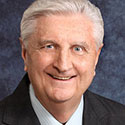Ten philosophers who discovered faith
By MercatorNet – Navigating Modern Complexities

Stimulating stories of how the pursuit of truth led to God.
Faith and Reason: Philosophers Explain Their Return to Catholicism
Brian Besong and Jonathan Fuqua (eds.) | Ignatius Press 2019, 289 pages
Faith and Reason consists of ten chapters, written by ten different philosophers, plus an introduction by the editors and a foreword by Francis Beckwith, professor of philosophy at Baylor University. Each chapter relates the author’s conversion (or reversion, in the case of Edward Feser) to the Catholic Church. All of the contributors are active professional philosophers and one might expect a certain sameness in their stories.
However, they are strikingly distinct: there are many paths to Rome and it is a city with many gates. Each of the tightly argued chapters richly repays careful reading.
Almost all of the authors come from Protestant backgrounds, predominantly Baptist and Lutheran, and some of them (Koons, Gage, Kreeft and Judisch) examine the claims of the strands of the Reformed tradition rather than explore a philosophical school.
Others, notably Feser, Budziszewski and Cutter, demonstrate how an extended engagement with certain schools of philosophy led them to “mere Christianity” and eventually to the Catholic Church.
The final chapter, “A Spiritual Autobiography” by Candace Vogler, is very different. She suffered the most appalling abuse at the hands of her father from a very early age (she does not go into details, but the hints are sufficient) and subsequently had to cope with a very dysfunctional family. The story of how she worked through all of this with the help of her studies in philosophy makes compelling reading. This is the least technical of the chapters and may have the widest appeal.
The contributions are extremely well written — a testimony to philosophy as an aid to clarifying one’s ideas. Some are quite technical, especially those of Budziszewski and Cutter. The technicality in Budziszewski’s case consists of a stringent examination of the claims of “science” – not real science, but the materialist goddess erected by contemporary culture and media. In order to make that distinction clear, Budziszewski delves into physics and asks why this should work against religious belief.
The quasi-religious dimension of certain contemporary scientific theories such as the Big Bang is well-known, as is the sincere religious belief of scientists like the cosmologist Georges Lemaitre and the geneticist Jerome Lejeune. And yet many still believe that science and religion are opposed.
Budziszewski highlights the commitment of some scientists to philosophical materialism as an assumption rather than as a conclusion. It is often thought that scientists begin with a blank slate and discover by reason that materialism or naturalism or physicalism (the belief that there is nothing at all in existence beyond material entities) is true.
But, as a well-chosen quotation from Harvard biologist Richard Lewontin makes abundantly clear: he would remain a materialist even if the evidence pointed in the opposite direction. This conviction on the part of some, but by no means all, scientists, amplified to an enormous extent by the media, does much to explain the popular conviction that religious belief is something one holds in the teeth of scientific evidence. There is no scientific evidence for the non-existence of God. There couldn’t be: you cannot prove a negative.
Physicalism, or materialism, emerges again in Cutter’s article. However, here we are concerned with Anglo-American analytic philosophy. Cutter homes in on philosophical anthropology, in particular the phenomenon of human consciousness and notes that the attempt to explain certain human phenomena (classically believed to be the fruit of human reason) in materialist terms ultimately fails.
Materialist philosophical anthropology set out to demonstrate that such things as free will, the capacity for reflection and so on were simply epiphenomena (i.e., highly developed instances) of material processes. Consequently, there was no reason to believe in a spiritual dimension to human existence — nor would the hypothesis of God make any sense.
Cutter demonstrates that such arguments simply do not stand up to scrutiny: an intense examination of the human capacity for cognitive development and a consideration of the horrible moral implications of a materialist anthropology led him to conclude that it is simply impossible. At that point, he notes, and taking several other elements into consideration, he “began to find Christianity plausible”. This is a difficult chapter because he packs a great deal into a few pages – the reader has to go very slowly in order to keep up – but it is extremely clear and well written.
Having convinced himself of the validity of Nietzsche’s claims, Edward Feser taught philosophy of religion to undergraduates. In an effort to make the classes more interesting, he ended up arguing himself back into the Catholic Church. Feser is known for his work on the arguments for the existence of God. His account of how he went from teaching dull, anthologised, ultimately falsified versions until he realised that he had to accept them if he was to remain a philosopher at all is very engaging.
Philosophy of religion is very often taught to show students that religion is every bit as stupid as the general culture tells them, so Feser’s account of his increasing interest and conviction of the merit of classical theistic arguments is very refreshing. He generously gives the names of several books which he found helpful in his research.
As mentioned, every chapter highlights something of concern to contemporary Catholics. In his contribution, the noted apologist Peter Kreeft engages with literary sources in an entertaining way and gives a list of classic Catholic works in an extensive footnote.
Logan Paul Gage takes up the question of the Canon of Scripture: why do Catholics and Protestants have different Bibles? What is the explanation of the Protestant rejection of the deutero-canonical books of the Old Testament? Is it justified? Cradle Catholics, who tend to feel inferior to Protestants in scriptural matters, will appreciate his treatment of the Catholic canon of Scripture as valid.
Robert C. Koons takes up the question of justification by faith, a most important element in Luther’s rejection of Catholicism, and provides an ample discussion of the 1999 Lutheran-Catholic Joint Declaration on the Doctrine of Justification.
The joint article by Lindsay K. Cleveland and W. Scott Cleveland treads the path mapped out by Scott and Kimberly Hahn in Rome Sweet Home: each recounts his/her story of conversion, weaving it into the story of their marriage and careers. How a serious engagement with religious faith affects life will be of compelling interest to some readers.
Certain themes run through the articles: reason, and, in most cases, an engagement with the thought of St Thomas Aquinas. This is interesting, because none started out from a perspective where Aeterni Patris (Leo XIII’s encyclical recommending the study of Aquinas to all Catholics) would have motivated them.
All authors note the hostility of contemporary culture to religion, especially Catholicism, and all recount how they managed to escape. The editors note hostility in departments of philosophy, but it exists in literature, history and science departments as well.
Faith and Reason is demanding – the authors are determined to give value for money — but it repays the effort. Philosophers may find it easier, but there is something for everyone.
AUTHOR
Catherine Kavanagh
Dr. Catherine Kavanagh is Senior Lecturer in Philosophy at Mary Immaculate College (University of Limerick) and Director of Postgraduate studies there. She received her B.A. and M. Phil. from UCD and her… More by Catherine Kavanagh
RELATED ARTICLE: Today Mankind is in Dire Need of More Philosophers like Anicius Boëthius
EDITORS NOTE: This Mercator Net column is republished with permission. ©All rights reserved.

This article is courtesy of DrRichSwier.com, an online community of citizen journalists, academics, subject matter experts, and activists to express the principles of limited government and personal liberty to the public, to policy makers, and to political activists. Please visit DrRichSwier.com for more great content.

